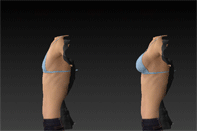So you’ve decided to move forward with plastic surgery. You’ve done your research, you’ve looked into all the options in your area, and you’re ready to take that next step and finally setup a consultation with a surgeon to discuss your options.
It can be a little nerve-racking to take that first step of setting up a consultation with a plastic surgeon. Even though you’ve done your research, you still have a lot of questions regarding the procedure, recovery, expectations, and of course, the doctors experience.
Most people come into a consultation prepared to ask all of the questions they had in their mind when researching the procedure, but a lot of times, once the consultation starts, nerves get the best of us, or you get flustered, and forget to ask some of the important questions.
Let’s take a look at what you can do to ensure that you get the most out of your consultation with your plastic surgeon.
How Should I Prepare for the Consultation?
The best thing you can do when preparing for the consultation is to write everything down. You may think that you’ll remember all the questions you wanted to ask once you get into the office, or join a virtual consultation, but chances are you are going to forget something.
The best way to ensure that you remember all the questions you had while researching the procedure and doctors is to bring written copies of your notes and questions.
Despite Your Research Listen to the Doctor
The internet is probably the greatest technological advancement in civilized history. It has connected people from around the world, built businesses, and created an ecosystem that wasn’t even fathomable 50 years ago.
At the same time though, it allows misinformation to spread at an unbelievable rate. Anyone, even totally unqualified individuals, can promote content about any topic they want. We’ve seen it recently with our politics in this country, but the same can be said for medical information.
By all means, do your research online before you consider plastic surgery. Look into the different procedures available, look into the doctors in your area, ask for recommendations from other medical professionals, or friends and family, absolutely do your due diligence. But if you come into a consultation assuming that you know everything, you’re not going to make the best medical decisions.
If you disagree with something a particular doctor tells you, or how they answer your questions, that’s fine, but take the information presented from that doctor and seek out another opinion in the medical field.
In most cases, when you’re speaking to a highly qualified, highly experienced, plastic surgeon, they will know and understand things in the medical field better than you can based on the few hours of research you did online.
It’s extremely important to listen to what your doctor has to say and trust them. If you don’t trust your doctor, then you’re probably not ready for plastic surgery, or you need to find a new doctor.
Obviously, you need to do what’s best for you, but do not put yourself on a pedestal because you read something online that doesn’t agree with what your doctor is saying; you don’t know who wrote the article or paper that you found online. It could be anyone.
What Questions Should You Ask?
As we mentioned before, it’s important to come to the consultation prepared with any questions you may want to ask the surgeon, but it’s also important to know what questions to ask.
General question about the procedure itself, recovery time, when you can return to activities and normal life, are all great questions to ask, but you’ll also want to ask some questions about the doctor and their experience with the procedure you’re looking for.
Asking the doctor about their qualifications, where they went to medical school, what certifications they have, how much experience they have with the specific procedure, will help you get a better idea about the doctor themselves.
It’s also important that you ask for references and examples of their work. If they can’t present to you a book or gallery of their work, that could be a red flag. If they aren’t willing to give you references of past clients that you may be able to reach out to and ask questions to, that could also raise some concerns.
It’s just as important to know about the plastic surgeon that it is to ask questions about the procedure itself.
What To Leave The Consultation With
When the consultation is over you should have a good understanding of the surgeon’s experience, references that you can contact, their standards and procedures, as well as how they treat their patients.
You should understand what goes into the surgery, where and how it will be performed, what sort of technology or advancements in the space that the doctor is implementing into their office, and have all your questions answered in a professional and respectable manner.
Most importantly, you should be comfortable with the doctor and their work.









![Fun Things to do in Dallas This Fall [2022]](https://i0.wp.com/www.dr-adams.com/wp-content/uploads/2022/09/fall-dallas-texas-150x150.jpg?resize=150%2C150&ssl=1)







